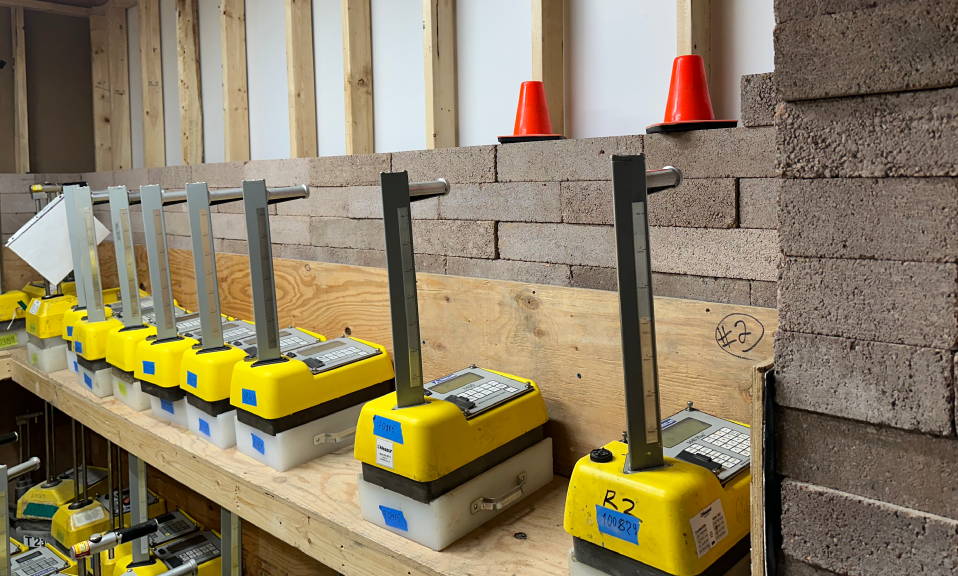No Products in the Cart

Calibration is the process of comparing the measurements of a gauge to a known standard. It is crucial because even high-quality density gauges can deviate over time, leading to inaccurate readings. With regular calibration, you can ensure that your gauges are providing reliable and precise measurements.
Proper gauge servicing calibration is not just a matter of accuracy, but also a question of safety and compliance. The risks associated with inaccurate gauge calibration density gauge include inaccurate measurements leading to improper construction quality, potential environmental contamination, and compromised safety in density testing.
The gauge calibration process involves several steps. First, a calibration standard that is traceable to a national or international standard is selected. Then, the gauge is compared to this standard using appropriate calibration equipment. Any deviations are recorded, and adjustments are made to bring the gauge within acceptable tolerances. Finally, a calibration certificate is issued, documenting the calibration results.
It's important to note that calibration is not a one-time event but an ongoing process. As gauges are used and subjected to different conditions, their accuracy can drift. Regular recalibration helps to identify and correct any deviations, ensuring that your measurements remain reliable over time.

At Measur, our expertise lies in the meticulous repair and calibration of gauges in Calgary and Toronto. Our process performed by our certified technicians is designed to deliver precision and reliability every step of the way:
Before initiating repairs, it's important to pinpoint any underlying issues affecting gauge performance. Common problems include inaccurate readings, damaged components, or fluid leaks. Thoroughly examining the gauge helps us determine the necessary course of action.
Repairing a gauge demands careful attention to detail and adherence to a structured process. We commence by disassembling the gauge, inspecting each component for signs of wear or damage. Faulty parts are promptly replaced, and the gauge is reassembled to ensure optimal functionality. Post-repair, calibration is conducted to verify precision and accuracy.
To enhance the longevity of your gauges and minimize repair requirements, regular maintenance is paramount. Keeping the gauge clean and devoid of dirt or debris is crucial. Proper storage in a conducive environment, shielded from extreme temperatures and corrosive substances, is essential. Additionally, adhering to manufacturer-recommended lubrication schedules for movable parts is vital. These proactive maintenance measures uphold gauge accuracy and reliability over time.
In the world of construction and infrastructure development, it's crucial to maintain top-notch quality in construction materials layers. That's where nuclear density gauges come into play as indispensable tools. Here, we'll explore the distinctive features and practical uses of four leading density gauges, each tailored to address unique requirements in construction materials quality control.
The Troxler Model 4640-B is engineered to measure the density of thin asphalt and concrete layers, ranging from 1 to 4 inches thick. Its standout feature is its ability to provide precise measurements without influence from underlying materials, thanks to its true thin layer gauge design. With onsite results available in as little as one minute and compliance with ASTM and AASHTO standards, the 4640-B is the go-to choice for projects requiring accuracy in thin asphalt overlays.
For projects requiring versatility in measuring various asphalt materials and thicknesses, the Troxler RoadReader 3450 is the ideal solution. This gauge combines thin layer and full-depth measuring capabilities in one instrument, allowing users to conduct compaction control at every stage of their project. With features such as a backlit screen for low-light testing, adjustable beeper for test completion indication, and storage of up to 1,000 test readings, the RoadReader 3450 offers both efficiency and accuracy.
Engineered for general compaction control needs, the Troxler RoadReader Model 3430/3440offers a range of features tailored to the user's specific requirements. Whether it's density measurement in backscatter or direct transmission mode, moisture measurement, or options for customization such as GPS location and data storage, this gauge provides the flexibility needed for diverse asphalt quality control applications.
For asphalt quality control measurements without the use of radioactive materials, the PaveTracker™ Model 2701-B Plus stands out. This electromagnetic density indication device offers rapid measurements over larger areas, weighing only 11 lbs and displaying results in just two seconds. With compliance to ASTM and AASHTO standards, along with optional features like an infrared temperature sensor and GPS capability, the PaveTracker™ is a reliable choice for asphalt quality control on the go.
Give us a call or drop by anytime, we will answer all enquiries within 24 hours on business days. We will be happy to answer your questions.
We would love to hear from you! Our team is always here to help.
+1 866 300 9012
contact@measur.ca
Vancouver, British Columbia
Calgary, Alberta
Mississauga, Ontario
Montreal, Quebec